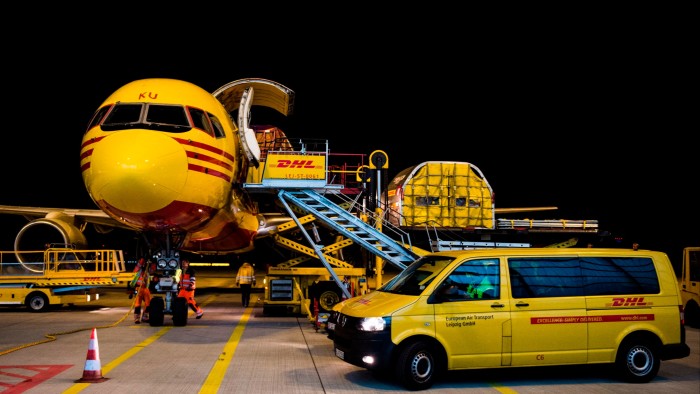Unlock the Editor’s Digest for free
Roula Khalaf, Editor of the FT, selects her favourite stories in this weekly newsletter.
Global logistics groups are rushing to relocate Chinese staff as more manufacturers in the country prepare to expand overseas in anticipation of tougher trading conditions with the US under a second Donald Trump presidency.
France’s CMA CGM, Switzerland’s Kuehne+Nagel and Germany’s DHL said they were redeploying Chinese staff to Europe, south-east Asia and Latin America, destinations that have been chosen for a “China-plus-one” diversification strategy, in order to better serve Chinese customers abroad.
The groups, who help clients manage their imports and exports, are responding to manufacturers’ moves to other low-cost production hubs as western buyers and politicians seek to cut imports from China amid rising trade tensions with the US.
CEVA, the logistics arm of CMA CGM, said it recently set up “China desks” in Europe with Mandarin-speaking staff, including sales and customer service specialists. It planned to add more over the next few years.
Kuehne+Nagel said it had deployed Chinese staff to Hungary and Slovenia in recent years, mainly to support technology group Huawei with its European operations.
The logistics provider, which has also relocated staff from China to Vietnam, Malaysia and Brazil, added that it was arranging a “local abroad” event in Shanghai in the spring, bringing in managers from various countries to enable further relocations of Chinese employees and meetings with Chinese customers.
DHL said it had been redeploying more Mandarin-speaking staff over the past few months, including salespeople. They had been sent to south-east Asian countries including Vietnam and Indonesia, with plans on the way to expand the programme to markets such as Hungary, Germany and Mexico.
“We have . . . [identified] a number of countries in the world that benefit from supply chain diversity, China plus one or nervousness about Trump,” said John Pearson, global CEO at DHL Express, adding that employing more Chinese staff overseas would “make sure we are getting our fair share of the [business] in these countries”.
Joanna Zhu, greater China managing director at CEVA Logistics, said employing such staff overseas could help Chinese clients in better “communicating and understanding local politics”.
Kuehne+Nagel added that Chinese companies operating abroad “need logistics specialists [who] speak the same language, who have a more proficient understanding of doing business with Chinese customers”.
The moves by logistics groups come as emerging production hubs such as Vietnam and Thailand are attracting a significant number of Chinese manufacturers, especially those with labour-intensive businesses, according to Kun Cao, deputy chief executive at consulting firm Reddal.
In the first 10 months of 2024, China was the second-largest foreign investor in Vietnam, with investments worth about $3.6bn, according to Reddal.
Despite Trump’s intention to target goods from China with tariffs, logistics executives said they expected Chinese manufacturers to continue exporting products but from a wider range of countries.
CEVA’s Zhu said Chinese companies and brands would account for an increasingly larger share of business for logistics groups as their operations spread.
“This is a transformation that we will have to undergo,” she said. “And this will happen very quickly . . . so our reaction will also have to be quick.”
Read the full article here

